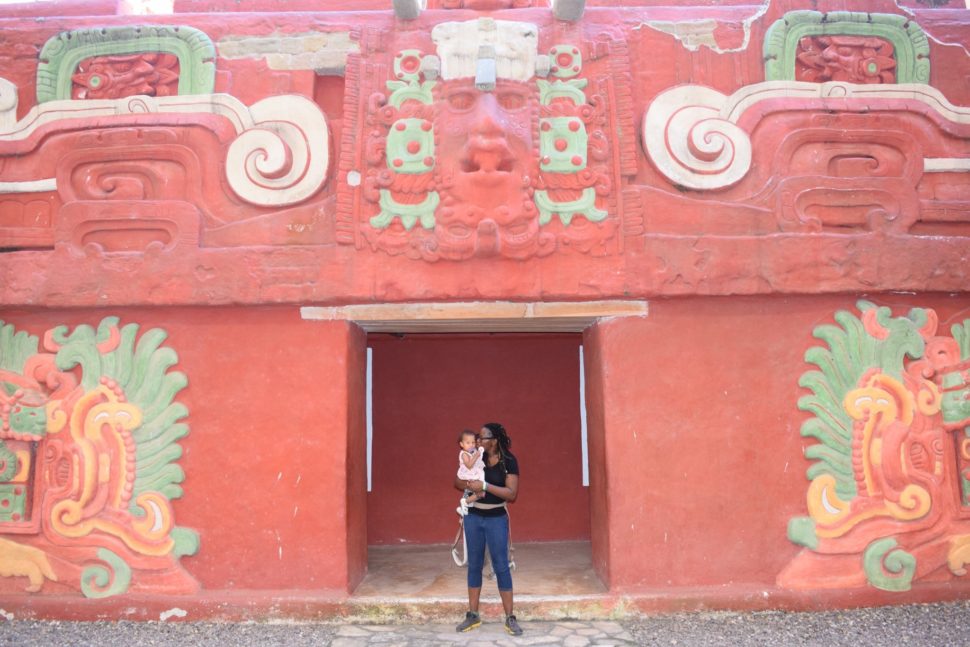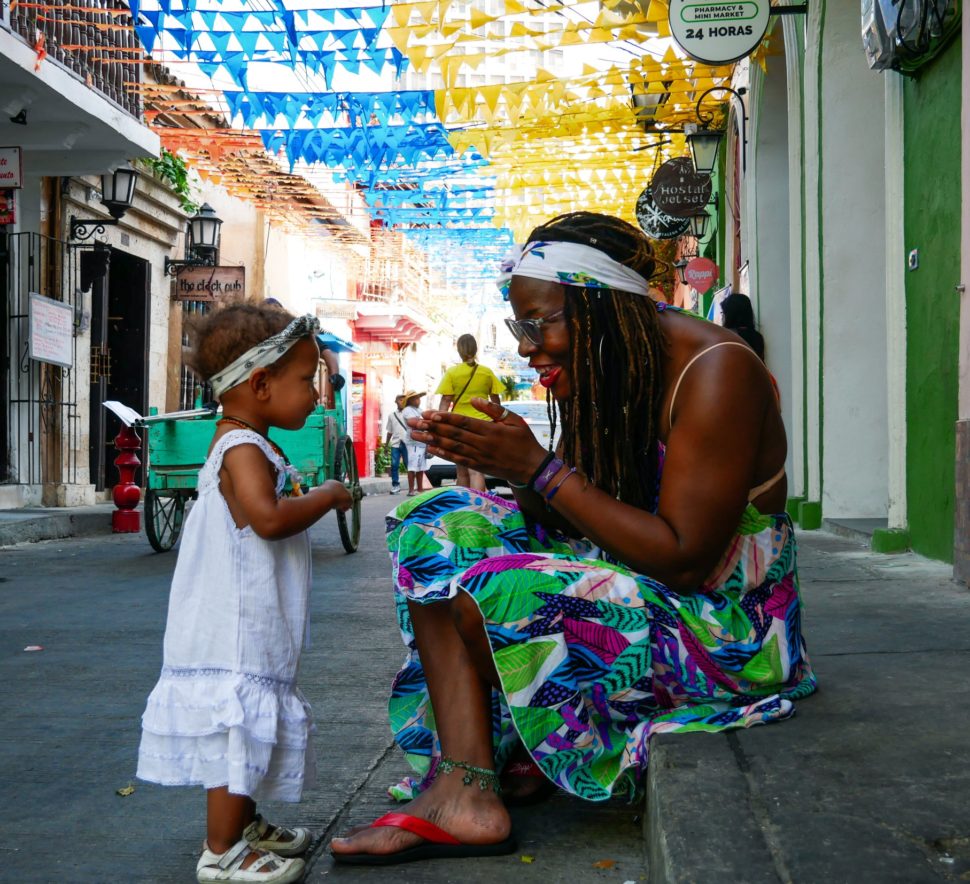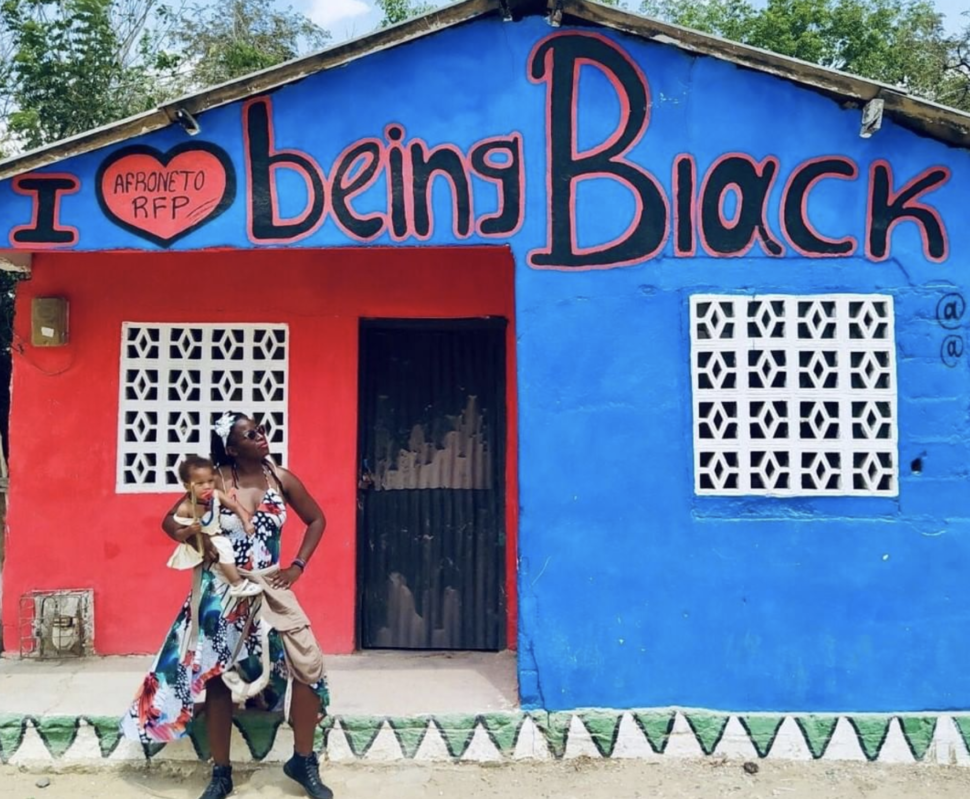Jackie Omotalade aka “Jackie O,” is an author and Black expat currently living in Guatemala where she slow travels full-time with her two-year-old.
She calls herself an original “OG” Black digital nomad who has been traveling the globe for over 25 years. After living abroad off and on for the last two decades, she recently decided to leave the United States for good.
“I did not want to subject my daughter to America’s special and deadly brand of racism,” she told Travel Noire. “More importantly, I wanted to raise a multilingual global citizen.”
As more Black Americans consider leaving, especially in light of the attempted coup in Washington DC and fear after the countless Black lives lost due to police violence, Jackie O has some advice on leaving the US and settling in your new country without acting like a colonizer.
Jackie O: I’ve never been subjected to daily microaggressions and toxicity the way I am in the US. I thank my blue passport because I know my experiences are unique to having an American passport. I’m viewed differently, but I also have an enormous responsibility not to adopt colonizer like attitudes when traveling the world.
If you’re traveling to Africa, for example, just know that Africa does not need thousands of African-Americans to return to the continent to lift Africa ‘out of poverty.’ Millions of Africans are already thriving. If you come to Africa, come to be a part of the existing communities.

RELATED: The Black Expat: How To Travel With Your Toddler
Jackie O: As for the curious folks that are sometimes out of pocket, can their curiosity be annoying? Hell yeah! Do they want to know about Black American people and Black American culture? Yes. Are they shocked that I sometimes speak their languages? Yes. Do I get offended? No.
I moved abroad because I’m curious as well. Human beings learn by asking questions, sometimes difficult ones, sometimes poorly worded ones, and sometimes racially insensitive ones.
A friend in the Philippines once asked me, “why was black face a bad thing?” I could have gone off, and if he were a white American, I probably would have. But his question was genuinely spun out of the lack of any historical or cultural reference.
He was immediately horrified when he learned of minstrel shows and black faces’ use in the US.

Is it my responsibility to educate the world on the history of race in America? No, but I took that opportunity to engage and get to know a person with an entirely different framework a little bit better. He was open, and I was open, and a real human connection happened. Ten years later and we are still friends.
Do people stare at me sometimes? Yes. When I first moved to the Bay Area and saw naked men strolling the Castro streets, did I stare? Yup, because it was completely different from my norm. Put me anywhere in the world today and let a naked man walk by, and he would have to have pretty well-defined abs for me even to blink.
We are all products of our experiences. I’ve been just as ignorant while traveling. I visited El Salvador, and naively asked why so many had left. I knew nothing about the civil war in El Salvador, in which the government (largely backed by the US government) killed thousands of civilians and displaced hundreds of thousands of others.
Jackie O: To anyone thinking of moving abroad, yes racism and other -isms exist in other parts of the world. I am actively engaged in making the entire world a better place and willing to have the difficult conversations that are required to have true understanding, transformation and dismantling of the systems of oppression— and to truly move forward.

When I left the U.S. 25-years ago, my entire world was shaped by the Black American experience. Now, it’s shaped by the global struggle and it is so much more nuanced. To be truly woke, I’ve found that I need to be able to advocate for indigenous land and linguistic rights, the same as I can discuss the conditions that led to the Biafra War and the oppression of the Igbo people. My focus has shifted from racist incidents to now eliminating systems that allow racism to flourish.
Ghana’s Year of the Return, combined with the popularity of DNA lineage testing, has led many Black Americans to decide to return to their ancestral homelands.
Black Americans have had their history, culture, and language stolen from them. I get it. But I also get that Black Americans, despite all the obstacles against them, have created a rich and beautiful culture of their own – a culture that the world tries to emulate and steal daily. They have created the definitive culture of the last century. There isn’t a culture in the world not influenced by Black American culture.
Many Black Americans seek to reconnect to their African roots via genetic testing, which is a beautiful thing. It’s wonderful to know where you came from, but you need to understand that just because your genetic DNA may be from a certain geographical area does not mean you are culturally a part of that group. Black Americans have their own rich, beautiful, and unique culture, as do the thousands of tribes and ethnic groups in Africa, Central, and South America. It is a culture that many around the world don’t truly understand or appreciate. Share it with them, but recognize that you are different from them and that there are parts of you and your culture that they may never understand. Accept that
Language is culture, and cultures are beautiful! If you want to experience the world’s cultures truly, learn the languages of the people whose land you decide to inhabit or visit. Don’t expect everyone to know English. Don’t expect everyone to be patient with you because you are struggling with their language. People have other things to do besides catering to you. A few phrases and a basic comprehension of numbers in the local language will get you far in most countries of the world. You can also equip yourself with tools for instant translations, such as Google Translate.
You are your own unique person. If you are traveling internationally, you most likely float to the beat of your own drum and live your life your way!
But the reality is that you also have culturally ingrained norms that you may assume all people can and should practice. Guess what? They don’t. And they are not interested in starting to practice them simply because you came from America and think your way is the best way of doing things. So instead of expecting people to show up on time for a meeting or drive how you think they should drive, accept that this is the way things are, and perhaps one day they may or may not change.
The world is big and beautiful, and the African diaspora is vast and diverse. Learn from it. Don’t try to fight every metaphorical battle just because you think you are right. You will exhaust yourself, instead learn and grow from the amazing and unique people and perspectives you will encounter.
You can follow Jackie O’s and Ruth’s adventures on YouTube. You can also ask for advice through her website or Instagram.
RELATED: “I’m Raising My Child Abroad To Avoid Labels America Puts On Little Black Girls”





